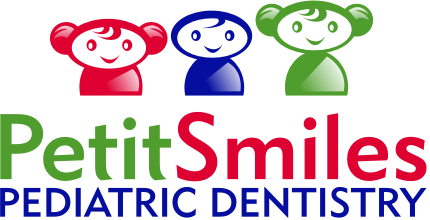
Diet essential for children’s dental health
Good dental health is essential for children’s overall well-being, and a crucial aspect of maintaining healthy teeth and gums is a well-balanced diet. At Petit Smiles, we believe that proper nutrition plays a significant role in the development and maintenance of strong teeth, preventing dental issues such as tooth decay and gum disease. This article will explore the importance of diet in children’s dental health and provide valuable insights into the foods and habits that promote optimal oral hygiene.
- The Impact of Sugary Foods and Beverages
Excessive consumption of sugary foods and beverages is a leading cause of dental problems in children. The bacteria naturally present in the mouth feed on the sugars, producing acids that erode tooth enamel and lead to tooth decay. It is crucial for parents to limit their child’s intake of sugary snacks, sodas, fruit juices, and candies. Instead, encourage them to opt for healthier alternatives like fresh fruits, vegetables, and water.
- Nutrient-Rich Foods for Strong Teeth
A balanced diet that includes essential nutrients is vital for children’s dental health. Calcium and phosphorus are particularly crucial, as they contribute to the development and strength of teeth. Incorporate calcium-rich foods such as milk, cheese, yogurt, and leafy green vegetables into your child’s meals. Phosphorus can be found in sources like lean meats, fish, eggs, and nuts.
Additionally, vitamin D is essential for calcium absorption and helps prevent tooth decay. Ensure your child receives adequate sunlight exposure, as the body synthesizes vitamin D when the skin is exposed to sunlight. Include foods fortified with vitamin D, such as fortified milk or cereal, in their diet.

- Importance of Fiber and Water
Fiber-rich foods are beneficial for dental health as they stimulate saliva production and help cleanse the mouth of harmful bacteria. Encourage your child to consume fruits like apples, strawberries, and pears, as well as vegetables like carrots and celery, which are excellent sources of fiber.
Furthermore, water is vital for maintaining optimal oral health. It helps rinse away food particles, reduces acidity levels in the mouth, and prevents dry mouth, which can increase the risk of tooth decay. Encourage your child to drink water throughout the day, especially after meals and snacks.
- Healthy Eating Habits and Oral Hygiene
In addition to a nutritious diet, establishing healthy eating habits and practicing proper oral hygiene routines are essential for children’s dental health. Encourage regular brushing of teeth at least twice a day with fluoride toothpaste and teach them the importance of flossing to remove plaque and food particles from between teeth.
Limiting snacking between meals can also contribute to better dental health. Frequent snacking exposes teeth to a continuous acid attack, increasing the risk of tooth decay. Instead, encourage structured mealtimes and offer healthy snacks like cheese, nuts, or vegetables.
- The Role of Vitamins and Minerals
Apart from calcium, phosphorus, and vitamin D, other vitamins and minerals also play a crucial role in children’s dental health. Vitamin C is essential for healthy gums and can be found in citrus fruits, berries, and leafy green vegetables. It helps prevent gum disease and promotes collagen production, which is vital for maintaining the integrity of the gums.
Iron is another important mineral for dental health. It aids in the development of strong teeth and helps prevent tongue inflammation and mouth sores. Incorporate iron-rich foods like lean meats, beans, spinach, and fortified cereals into your child’s diet.
- The Importance of Limiting Acidic Foods
While it is important to focus on nutrient-rich foods, it is equally crucial to limit the consumption of acidic foods and beverages. Acidic substances erode tooth enamel, making teeth more susceptible to decay. Citrus fruits, vinegar-based dressings, carbonated drinks, and sports drinks are examples of acidic foods and beverages that should be consumed in moderation.
Encourage your child to rinse their mouth with water after consuming acidic foods or drinks and wait at least 30 minutes before brushing their teeth. Brushing immediately after acid exposure can further damage weakened enamel.
- The Role of Probiotics
Probiotics, beneficial bacteria that promote gut health, can also have a positive impact on oral health. Research suggests that certain strains of probiotics can help prevent tooth decay and gum disease. These probiotics work by inhibiting the growth of harmful bacteria in the mouth and reducing inflammation.
Include probiotic-rich foods like yogurt and fermented foods in your child’s diet to promote a healthy balance of oral bacteria. Contact us for guidance on appropriate probiotic supplements if necessary.
| Dietary Recommendation | Foods to Include | Foods to Limit |
|---|---|---|
| Limit Sugary Foods and Beverages | – Fresh fruits | – Sugary snacks and candies |
| – Vegetables | – Sodas and fruit juices |
| – Water | – Sweetened cereals and desserts | |
|---|---|---|
| Choose Nutrient-Rich Foods | – Milk, cheese, yogurt | – Excessive consumption of processed foods |
| for Strong Teeth | – Leafy green vegetables | – High-sugar breakfast cereals |
| – Lean meats, fish, eggs, nuts | – Deep-fried and sugary snacks | |
|---|---|---|
| Increase Fiber and Water Intake | – Apples, strawberries, pears | – Sticky or chewy candies |
| – Carrots, celery | – Sugary beverages | |
| – Whole grains | – Processed fruit snacks |
| – Water | ||
|---|---|---|
| Promote Healthy Eating Habits | – Structured mealtimes | – Frequent snacking between meals |
| and Oral Hygiene | – Balanced and nutritious snacks | |
| – Regular brushing of teeth |
| – Flossing daily | ||
|---|---|---|
| Consider Vitamins and Minerals | – Citrus fruits, berries | – Excessive consumption of acidic foods |
| – Leafy green vegetables | and beverages |
| – Lean meats, beans, spinach | ||
|---|---|---|
| Explore Probiotic-rich Foods | – Yogurt, fermented foods | |
| – Probiotic supplements | ||
| (if recommended by healthcare professional) |
Conclusion
By considering the role of vitamins and minerals, limiting acidic foods, and exploring the potential benefits of probiotics, parents can enhance their children’s dental health further. Remember, maintaining a well-balanced diet that includes nutrient-rich foods, encouraging healthy eating habits and oral hygiene practices, and minimizing the consumption of sugary and acidic foods are key components of promoting optimal dental health in children. By instilling these habits early on, parents can set their children on a path towards a lifetime of healthy smiles and overall well-being.
Our Dental Offices, with the Best Pediatric Dentists in Coral Gables and Doral FL, can provide additional guidance on how to maintain good oral hygiene and prevent dental problems.


